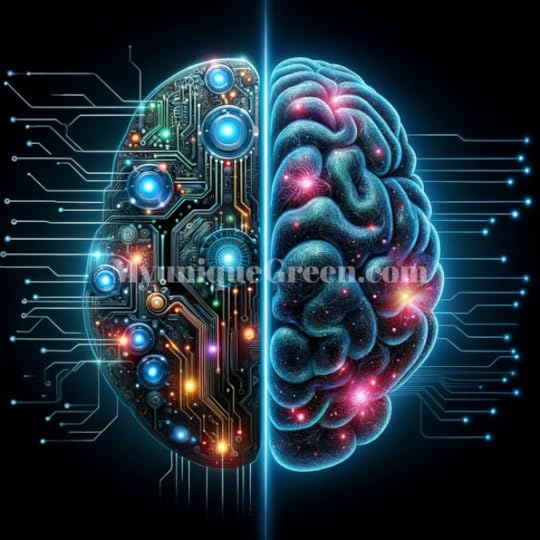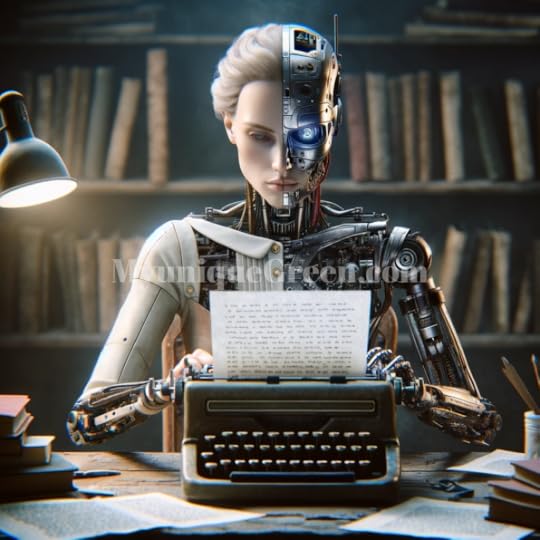AI in Writing: Pros and Cons
Hey there! Have you ever wondered what it’s like when creativity meets artificial intelligence (AI)? As a writer in the digital age, I’ve been both curious and cautious about the role of AI in creative writing. It’s a bit like inviting a robot to a poetry slam – intriguing yet slightly unsettling, right? In this post, we’re diving into the world of AI in creative writing. We’ll explore the good, the bad, and the quirky sides of this tech-meets-talent story. Whether you’re a seasoned writer, a curious newbie, or just here for the ride, there’s something for everyone. So, grab a cup of your favorite beverage, and let’s unravel this techy tale together!
What is AI in Creative Writing?When we talk about AI in creative writing, what exactly are we referring to? In simple terms, it’s like having a digital writing buddy powered by some seriously smart algorithms. This AI buddy doesn’t just correct your grammar or spellings; it goes beyond that. It can suggest whole sentences, dream up stories, or even write poetry!
Think of it as a tool, kind of like a more advanced version of auto-complete on your phone. You start a sentence, and bam! The AI suggests how to finish it. But it’s not just parroting back words; it’s learning from a vast library of existing literature and writing styles. It’s like having a mini Shakespeare, J.K. Rowling, and Stephen King rolled into one in your computer, ready to pitch in ideas.

But it’s not just about mimicking styles. AI can generate original content too. Need a story about a space-traveling cat? Or a poem from the perspective of a raindrop? AI’s got you covered. The beauty of this is the sheer variety and creativity on offer. It’s like opening a door to a room full of writers from every genre imaginable.
Yet, as we’ll see, it’s not all sunshine and rainbows. While AI can be a fantastic tool, it has its limitations and ethical dilemmas, which we’ll explore later on. For now, imagine this: a world where writer’s block is just a bad memory, and your creative muses are just a few clicks away. Tempting, isn’t it?
Pros of Using AI in Creative Writing A. Time-saving and EfficiencyOne of the most significant advantages of using AI in creative writing is how much time it saves. Imagine you’re working on a deadline, and the clock is ticking ominously. With AI, what used to take hours can now be done in minutes. It’s like having a super-efficient assistant who’s ready 24/7 to help churn out ideas, phrases, or even entire paragraphs. This efficiency doesn’t just speed up the writing process; it allows more time for refining and editing, ensuring the final piece is polished and high-quality.
B. Overcoming Writer’s BlockWriter’s block – the dreaded enemy of all writers. It’s like hitting a mental wall, and no matter how hard you try, words just won’t flow. Here’s where AI can be a game-changer. By suggesting ideas or continuing where you left off, AI can provide that much-needed spark to reignite your creativity. It’s like having a creative partner that never runs out of ideas, ensuring the well of inspiration never runs dry.
C. Diversity of Ideas and StylesThe diversity of ideas and styles that AI brings to the table is nothing short of amazing. With access to a vast array of genres, writing styles, and historical literature, AI can offer perspectives and voices that you might not have considered. Want to write a Victorian-era romance? Or a futuristic sci-fi thriller? AI can provide suggestions in these styles, enriching your work with varied tones and flavors. This diversity not only enhances creativity but also broadens a writer’s skill set.
D. Accessibility for All WritersAI in creative writing isn’t just for seasoned professionals; it’s a boon for beginners and those with writing challenges too. For someone just starting, AI can serve as a gentle guide, helping to shape thoughts into coherent narratives. It’s also a powerful tool for those who might struggle with language barriers or dyslexia, making the art of writing more accessible and less daunting. In essence, AI democratizes the writing process, opening it up to anyone with a story to tell.
Now, it might sound like AI is the best thing since sliced bread for writers. But, as with any technology, there’s another side to this story. In the next section, we’ll delve into the cons of using AI in creative writing. Spoiler alert: it’s not all rosy.
Cons of Using AI in Creative Writing A. Lack of Emotional DepthOne significant drawback of AI in creative writing is the lack of emotional depth. While AI can generate content that is technically sound and stylistically varied, it often struggles to capture the nuanced emotions that human writers inject into their work. Emotional storytelling is not just about using the right words; it’s about understanding the complex tapestry of human feelings and experiences. AI, at its current stage, can’t fully replicate this emotional intelligence. It’s like having a beautifully painted picture that, upon closer inspection, lacks soul.
B. Potential to Diminish Creative SkillsThere’s a concern that over-reliance on AI could lead to a decline in creative skills. Writing is like a muscle – it needs to be exercised regularly to stay strong. If writers start depending too much on AI for ideas or content generation, there’s a risk that their own creative abilities could atrophy. It’s a bit like using a calculator for every simple math problem; over time, you might find yourself struggling to do basic calculations in your head.
C. Ethical Concerns and Originality IssuesThe use of AI in creative writing also raises ethical questions, particularly around originality and plagiarism. Since AI generates content based on existing literature, there’s a fine line between inspiration and imitation. This blurs the boundaries of what is considered original work. As a writer, you want your voice to be uniquely yours, not an echo of a machine’s interpretation of other texts. Navigating this ethical minefield can be tricky and is a significant concern in the literary community.
D. Dependence on TechnologyFinally, there’s the issue of becoming too dependent on technology. As exciting as it is to have a tool that can aid in writing, there’s a certain magic in the traditional process of penning down thoughts, ideas, and stories. Relying too heavily on AI risks losing that personal touch and connection that comes from crafting a narrative with your own imagination and experiences. It’s crucial to find a balance, using AI as an aid, not a crutch.
So, there you have it – the pros and cons of using AI in creative writing from my perspective. It’s a mix of amazing potential and noteworthy caution.
Personal Experiences with AI in WritingLet me share a bit about my journey with AI in creative writing. It’s been a mixed bag of fascinating discoveries and sobering realizations. When I first dabbled with AI tools, I was blown away by the speed and variety of content it could produce. Need a poem on a specific theme? Done in seconds. Want to start a story but stuck on the first line? AI had suggestions ready.
However, as I used AI more, I noticed a pattern. The stories and poems had flair, sure, but they lacked a certain… heart. They were like well-assembled jigsaw puzzles missing the final piece that makes the picture whole. That’s when it hit me – AI can assist, but it can’t replace the human touch in storytelling, the emotional connection that resonates with readers.

I also caught myself getting a bit lazy. Why rack my brain for an idea when AI could spit out ten? This was a wake-up call. I realized that while AI is a fantastic tool, it’s crucial not to lose the essence of what makes writing so personal and fulfilling – the joy of creating something uniquely yours.
So now, I use AI as a companion in my writing journey, not as a pilot. It’s there for inspiration, for overcoming the occasional writer’s block, but the core of my writing remains distinctly human – flawed, emotional, and wonderfully mine.
ConclusionAnd there we have it – a stroll through the intriguing landscape of AI in creative writing. It’s a world where technology offers amazing tools that can inspire, assist, and even challenge us as writers. From the efficiency and diversity AI brings to the creative process, to the concerns about emotional depth and originality, it’s clear this journey with AI is complex and multifaceted.
My take? AI in creative writing is like a spice in cooking – used wisely, it can enhance the dish, but too much can overpower the original flavors. As writers, it’s important to embrace new tools and innovations, but equally crucial to retain the essence of our human creativity.
So, what do you think? Will AI be your co-author, your muse, or just an occasional visitor in your writing endeavors? The future of AI in creative writing is as much in our hands as it is in the algorithms. Let’s write it well.



